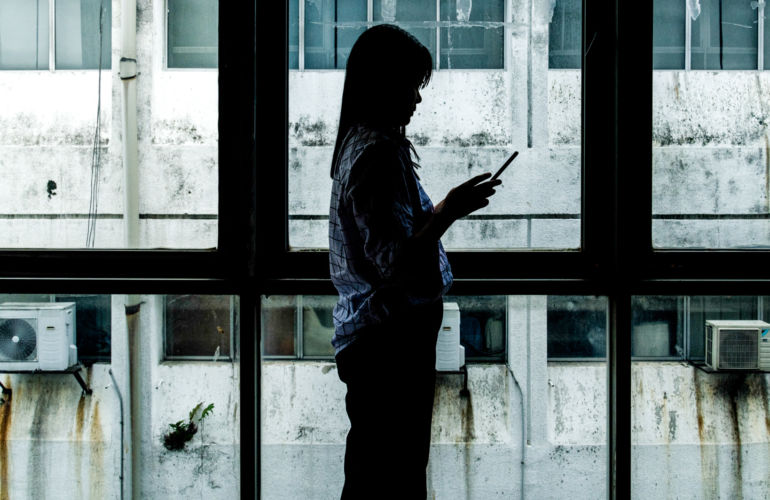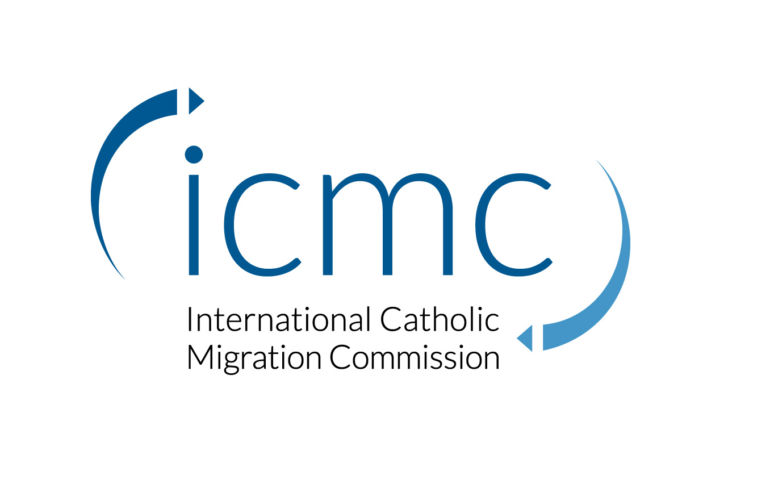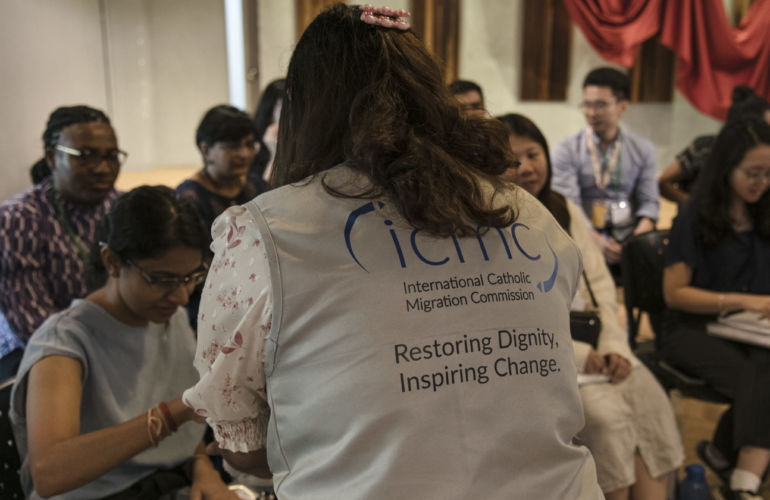Providing Support to Rebuild Lives: ICMC’s Shelter and Counseling Services in Malaysia
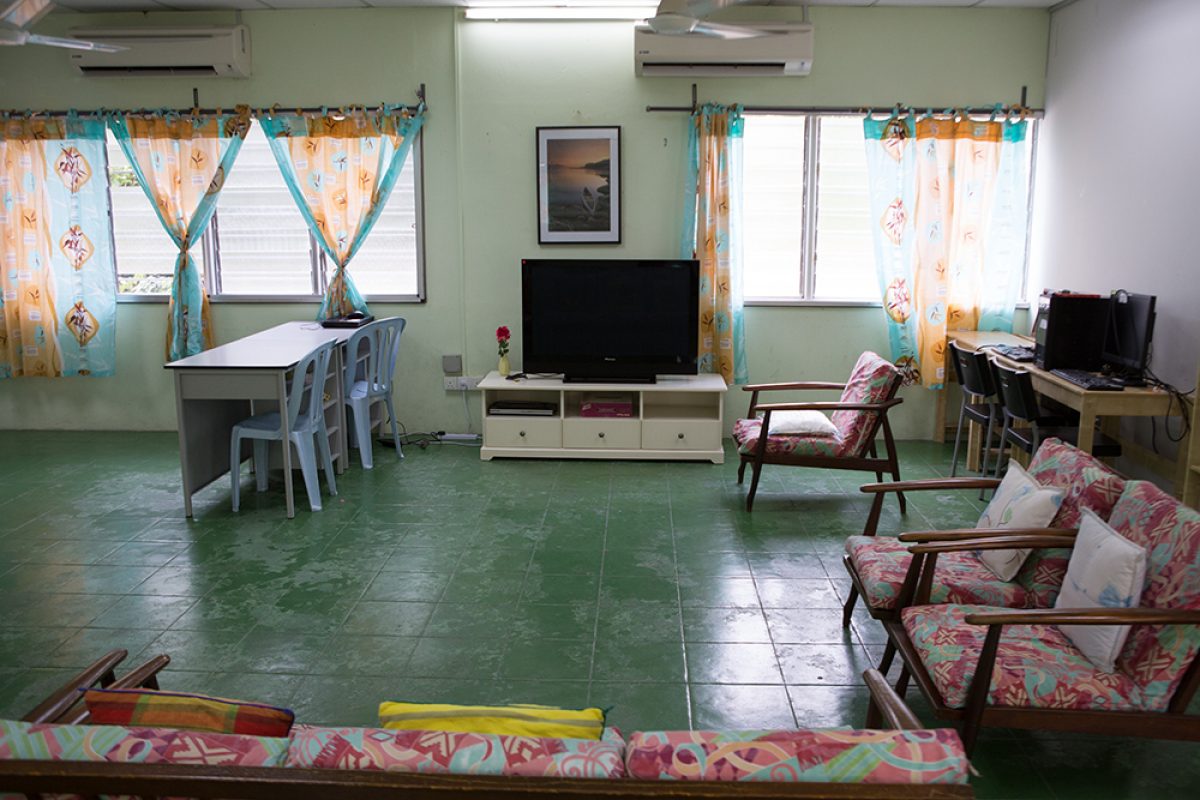
By Corinne Brodeur*
In the previous part of this series on the International Catholic Migration Commission’s protection work with survivors of gender-based violence in Malaysia, we followed ICMC’s Refugee Protection Corps’ members as they conducted awareness-raising activities in the Rohingya community. In this second part, we discover some of ICMC’s partners – a safe shelter for women and children and a counseling center for survivors and witnesses of abuse.
“You look so different now!” exclaims ICMC case manager Su Zane when Khadija** walks into the meeting room of the Global Shepherds Berhad shelter for survivors of gender-based violence in Kuala Lumpur, Malaysia’s capital city.
When Khadija first arrived at the shelter two weeks ago, she didn’t smile or look the staff in the eye. The soft-spoken twenty-four-year-old now laughs as she tells Su Zane that she won second prize in the shelter’s activities celebrating the International Day of the Girl Child.
“She even asked me if I could bring her some mango the other day,” Shelter Supervisor Jacqie tells Su Zane triumphantly. “She is really starting to assert herself.” Both women know that such achievements can be invaluable when helping survivors of extreme abuse to regain the self-confidence they need to rebuild their lives.
For Khadija, rebuilding her life includes learning to connect with her six- and four-year-old sons. One technique her husband used to control her was to isolate her from her children and to punish her when she tried to get close to them. In the shelter, she is now learning to bond with them and mother and sons are slowly building a new relationship.
At the age of 15, Khadija left Myanmar for an arranged marriage in Malaysia. For five days, she followed smugglers’ orders, crossing jungles on foot and by boat, often without food or sleep. In Malaysia, her new husband immediately began abusing her. She endured mistreatment every day for nine years until two weeks ago, when she decided to flee.
She gathered a few clothes and some money. With her sons in tow, she sought assistance from the UN Refugee Agency, who referred her to the International Catholic Migration Commission. ICMC staff brought her to the Good Shepherd’s shelter, which operates in an undisclosed location.
The shelter focuses on helping survivors build a plan to become independent. Most survivors initially come for two weeks, at the end of which their case is reassessed and they may stay for up to one month if necessary. Khadija’s stay was prolonged because her husband has reported her missing to police authorities and community members and there is fear that he may find her and their children and harm them if she is discharged.
At the shelter, survivors get to know each other and create a support circle that often carries on once they leave. They help each other find a place to live and a job and care for each others’ children.
Jacqie beams with pride as she recalls some of the survivors whom she met over the past seven years. She describes the resident who became self-sufficient through programs conducted at the shelter; the semi-literate teenager in such danger that only resettlement to another country could ensure her protection and who is now completing a Master’s degree; the woman who found employment and housing within a week, not only for herself but also for a friend she met at the shelter.
The shelter was founded by the Good Shepherd Sisters over 40 years ago and has focused on protecting migrant workers for most of that time. It takes in women and children and can welcome 20 people at a time. ICMC has been in partnership with the Good Shepherds shelter since 2011 to provide protection to refugee survivors of gender-based violence whose life is most at risk.
ICMC Malaysia also partners with a second, Rohingya-run, medium-security shelter for cases in which the life of the survivor is not in immediate danger.
Building back shattered lives
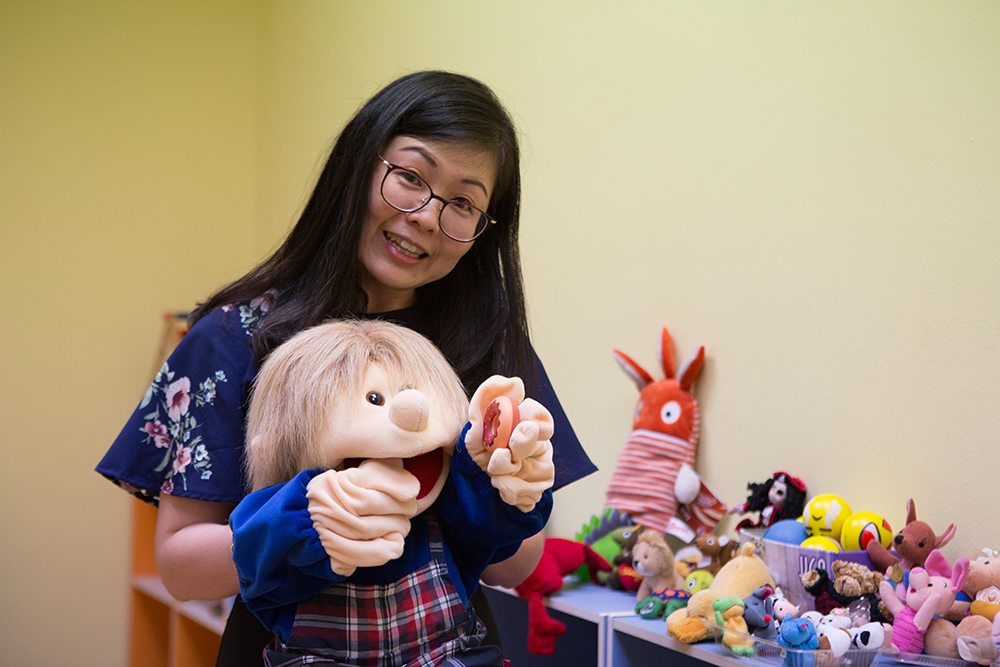
Hundreds of figurines, puppets and stuffed animals are piled up on long shelves in the soothing green children’s therapy room at the Enrich Counselling and Therapy Center. The center is ICMC’s therapy service provider for children and adults who have endured or witnessed gender-based violence.
On this sunny afternoon, counselors Yvonne Lee and E Laine Loh explain how they use play to treat the traumas of refugee children referred to them by ICMC.
“It is sometimes difficult for children to express their feelings in words,” says E Laine. “By using toys, they can create a story and we can start to understand what they are going through.”
E Laine will often invite them to build a family or their home using doll houses and figurines. Depending on the type of toy the child chooses to depict characters, she can start to understand the family dynamic.
She might then ask the child if there is anything they are afraid of. Stories of being attacked by monsters or ferocious animals or being saved by Superman all help recreate the story of the child’s life and E Laine and Yvonne can slowly determine how to treat the child’s trauma.
Some children prefer to use the center’s sandbox to create their stories. Behaviors such as burying certain figurines are significant clues into a child’s psyche which may symbolize death, secret, avoidance and closure, says Yvonne.
The center’s therapeutic arsenal also includes emotion cards, tea sets, arts and crafts supplies, a puppet known as the Worry Eater that devours papers on which children have written down their fears and E Laine’s alter ego Billy, a doll that quickly becomes many children’s confidant.
The counselors use building blocks as a metaphor that children can understand. “What do we do when what you’ve built is destroyed?” E Laine will ask her little clients. “We build it back again!” they will invariably reply.
For many children, especially those who have not attended school, it may take three or four sessions before they begin to verbalize their past.
ICMC refers refugee children and adults who have survived or witnessed sexual and gender-based violence to Enrich Counseling. “When it comes to refugees, the trauma is usually quite deep,” reflects Yvonne as she compares cases referred by ICMC to some of her other clients.
The center provides therapy to a diverse clientele, but cases involving sexual and gender-based violence are particularly complex. “Some children have decided not to revisit the trauma” as a coping mechanism, says E Laine. “We must give them time to decide and allow them to know that they are free to choose what they wish to revisit and what they don’t.”
ICMC’s activities in partnership with the Global Shepherds Berhad shelter and with the Enrich Counseling Center are supported by the US Department of State’s Bureau of Population, Refugees and Migration.
*Corinne Brodeur is ICMC’s Communications Officer
** Name of survivor has been modified to protect her identity.
Read Meeting Survivors of Gender-Based Violence Where They Are, the first installment of this series on ICMC’s protection work for survivors of gender-based violence in Malaysia
